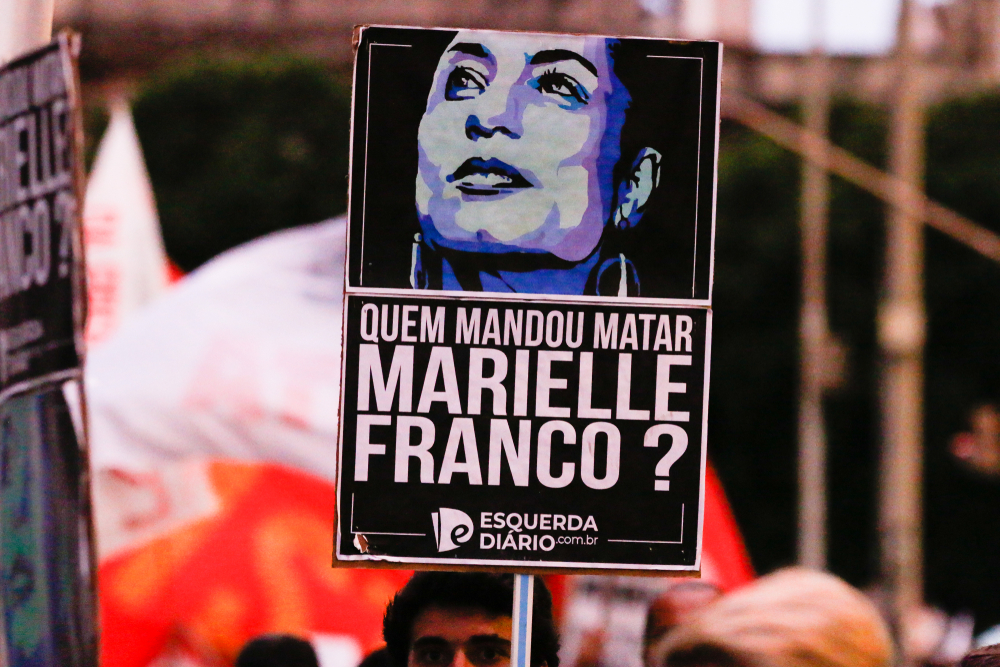On a rainy Sunday, more than 7,000 people attended the inauguration of the Casa Marielle Franco cultural center in downtown Rio de Janeiro. As the Gênero e Número reporting team arrived at the venue, the crowd were chanting the song made famous by the Mangueira samba school, which won Rio de Janeiro’s Carnival competition in 2019 with a tribute to Marielle Franco, the city councilor who was assassinated two years ago alongside her driver Anderson Gomes.
The cultural center, which will remain open throughout the month of March, will house a permanent exhibition about the story of Ms. Franco.
During the center’s opening ceremony, Anielle Franco, Ms. Franco’s sister and head of the Marielle Franco Institute, spoke of the hope that fuels her search for answers, her discomfort with the misuse of Marielle’s image, and her plans for the Institute.
“I have a dream: to make people on the right, left and center to be able to hold a dialogue within the Marielle Franco Institute. Because the main difficulty today is to make them understand that it is not about political ideology or parties. It was a political femicide.”
Read excerpts from the interview below:
Why did you and your family decide to create the Marielle Franco Institute?
When they murdered Marielle, we were being sought out for various purposes. By the Public Prosecution Service, to give lectures, to support candidates… At that moment, I realized that we needed to have a way to focus this somehow, because I thought it was important. Besides the fake news, there was something very contradictory talked about our family, but it was never the family that was talking.
I brought the whole family together, my parents, Mônica Benício and Luyara [Marielle’s widow and daughter, respectively] to present this idea, which was initially to make a project focused on education in Maré [the favela where Marielle was born and raised]. I had no idea that it could become this. Talking to black women in the area, such as Lúcia Xavier [coordinator of black women’s rights NGO Criola], they told me that I would be able to do something bigger and I started thinking about it. After a year of thinking and development, I arrived at four pillars: justice, memory, legacy and seeds.
I have a dream: to make people on the right, left and center to be able to hold a dialogue within the Marielle Franco Institute. Because the main difficulty today is to make them understand that it is not about political ideology or parties. It was a political femicide. I...


 Search
Search






































